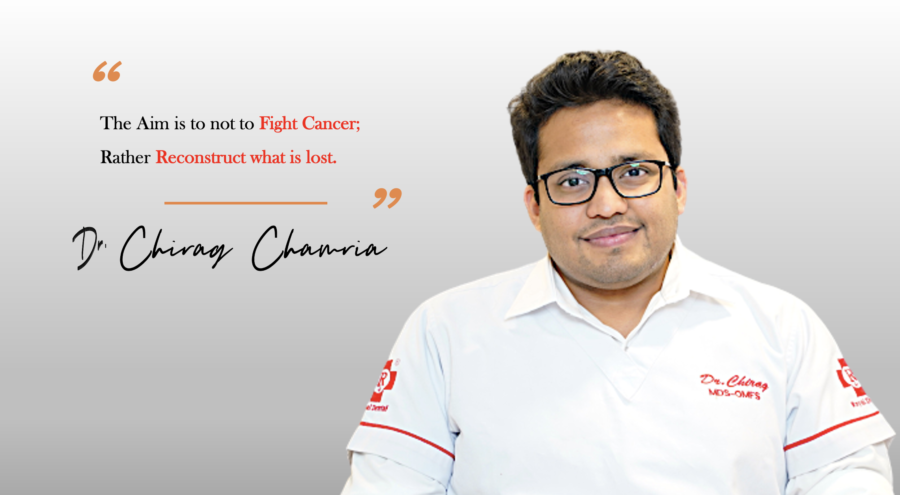The distinction between a general surgeon and a dentist may seem as insignificant as the distinction between a dental mirror and a scalpel in a society where medical professionals are the unsung heroes. Still, the complexities of these two vocations go well below the surface, like a secret root canal waiting to be found. Together, we are going to dig into the intriguing fields of general surgery and dentistry, learn about their subtleties, and determine when it is appropriate to trust one of them with your health.
Who are Dentist?
The unsung heroes committed to maintaining the delicate balance of our oral health are dentists. Let us examine the educational background, specializations, and standard methods that characterize the dentistry field in order to fully appreciate the competence they bring to the table.
Training & Education of Dentist
Years of focused study and training are necessary to get the status of specialist in oral health. This journey is usually started by aspiring dentists earning a bachelor’s degree, usually in a science-related subject. The major metamorphosis starts when they register in dentistry school after this.

The curriculum in dental school is rigorous and all-encompassing, covering both academic and practical knowledge and abilities. Students study topics include oral cavity-specific anatomy, physiology, and pathology. A vital component is clinical training, which gives aspiring dentists the chance to improve their diagnosis and treatment abilities under the supervision of more seasoned professionals. After graduating, dentists can decide to focus even further on particular areas of dentistry, which would add still another level of proficiency to their repertoire.
Specializations within Dentistry | Dentist
Orthodontics:
The alignment of teeth and jaws is the main concern of orthodontic specialists. To address problems like misalignment and uneven bites, they create and use orthodontic devices like braces and aligners.
Oral Surgery:
Surgeons that specialize in oral surgery are qualified to carry out operations inside the mouth. This covers treating difficult dental diseases that can necessitate surgical intervention, as well as extractions and jaw procedures.
Endodontists:
Endodontic specialists treat the pulp and nerves found inside teeth. In order to save a tooth, endodontists frequently perform root canal procedures, which involve extracting diseased or damaged pulp.
Common Dental Procedure and Treatment
Maintenance and Cleaning of Teeth:
The cornerstone of preventative treatment is routine dental cleanings. By using specialized instruments to remove plaque and tartar, dentists and dental hygienists can avoid problems like gum disease and cavities. During these sessions, advice on appropriate oral hygiene procedures is frequently given.
Restorative dentistry and fillings:
Restorative dentistry is used when cavities occur. Dentists fill cavities and repair damaged teeth’s structural integrity with a variety of materials, including amalgam or composite resin. This maintains ideal oral function while simultaneously halting more deterioration.
Options for Cosmetic Dentistry:
Dentists understand the value of aesthetics in dental health beyond just functioning. Options in cosmetic dentistry are available to individuals who want to improve the way their teeth look. Dental bonding, veneers, and teeth whitening are popular procedures that give patients a bright and self-assured smile.
Who is a General Surgeon?
General surgeon is the pillar of the medical community who expertly and precisely navigate the complex terrain of the human body. In order to obtain a thorough comprehension of their function, let us examine the educational path, many specializations, and range of surgical techniques that characterize the field of general surgery.

Overview of General Surgeon Education
The path to becoming a general surgeon is one of intense education marked by both practical training and high academic standards. The usual first step on this path for aspiring surgeons is earning a bachelor’s degree, usually in a science-related discipline. They next go through the rigorous process of medical school, where they study the intricacies of human anatomy, physiology, and pathology.
A general surgery residency program becomes the main focus of their study after graduating from medical school. Future general surgeons undergo this rigorous training, which lasts several years, to hone their surgical techniques, get real-world experience, and deal with a variety of medical situations under the direction of knowledgeable mentors. A surgeon’s board certification, which attests to their skill and commitment to the highest standards of medical practice, completes their educational route.
Different Surgical Specialties in a Range of General Surgery
Trauma Surgery:
With a focus on treating traumatic injuries, trauma surgeons are skilled in handling urgent and potentially fatal circumstances, frequently in emergency rooms like hospital trauma bays.
Colorectal Surgery:
Specialized in diseases of the colon and rectum, colorectal surgeons treat ailments such as colorectal cancer, inflammatory bowel disorders, and disorders that necessitate surgery.
Breast Surgery:
Surgical techniques for diagnosing, treating, and reconstructing breast abnormalities are carried out by breast surgeons.
Surgical Operation Conducted by General Surgeon
Abdominal surgeries and appendectomies:
General surgeons are frequently asked to conduct appendectomies, which involve surgically removing the appendix. They also specialise in a variety of abdominal procedures, treating ailments like gastrointestinal diseases, gallbladder problems, and hernias.

Soft Tissue Surgeries:
This category includes a wide range of operations affecting the muscles, tendons, and soft tissues of the body. General surgeons can do procedures to treat traumatic soft tissue injuries, remove malignancies, or remove cysts.
Emergency Surgical Interventions:
In times of crisis, general surgery’s fundamentals come to the fore. Surgeons are skilled in treating acute illnesses that necessitate quick decisions in order to preserve life, such as bleeding, traumatic injuries, or punctured organs.
Dentist vs General Surgeon: Comparative Analysis
This section aims to perform a thorough comparison analysis of general surgeons and dentists, examining their respective areas of practice, educational backgrounds, essential competencies, and daily work situations.
Practice Area and Patient Population
Treating problems with teeth, gums, and the oral cavity as a whole, dentists mainly concentrate on oral health. They cover cosmetic upgrades, restorative operations, and preventive care. Working with patients of all ages, dentists frequently stress the value of early intervention and continued maintenance of oral health.
However, the area of work for general surgeons is wider and includes the entire body. They provide care for a wide spectrum of patients, treating ailments that can call for surgery. General surgeons handle the complexity of several medical specialties, such as trauma, intestinal problems, and soft tissue procedures, in situations ranging from pediatric to geriatric.
Educational Differences and Training Duration
The different educational pathways that general surgeons and dentists take reflect the unique requirements of their respective fields.
Dentist:
Dental school is usually a four-year curriculum that dentists attend after earning a bachelor’s degree. If chosen, further specialization could add several more years to their study.
General Surgeon:
The educational process for general surgeons entails completing medical school, followed by a residency program in general surgery, which lasts roughly five to seven years. Their extensive training equips them to handle a wide range of issues that may arise in the surgical field.

Important Qualities and Abilities Needed for Each Profession
Precision and Attention to Detail in Dentistry:
During procedures like fillings, root canals, and cosmetic improvements, dentists particularly shine in precision and attention to detail. Because of the mouth cavity’s sensitive nature, precise labor and an acute eye for detail are necessary.
Decision-Making and Crisis Management for General Surgeon:
General surgeons need to be very capable of making decisions and managing emergencies. Rapid decision-making and thorough research are critical in emergency scenarios, such as trauma or urgent surgical demands. The ability to perform under pressure distinguishes general surgeons.
Workplace and Typical Daily Activities
Dental Office Dynamics:
Private or group offices are the norm for dentists. The dentist office is a welcoming setting for patients, frequently emphasizing routine examinations, elective procedures, and preventive care. The generally calm pace makes it possible for in-depth consultations and one-on-one encounters with patients.
Hospital-Based Practices:
Surgeons in general practice work in a variety of environments, such as surgical centers and hospitals. Preoperative evaluations, surgical operations, and postoperative care are all part of their daily work. Because of the changing surroundings, there’s a chance for urgent surgeries that need to be attended to right away. In a hospital-based practice, working together with other medical experts is typical.
Perspective from Dr Chirag Chamria
With a plethora of experiences and viewpoints, dentist Dr. Chirag Chamria of Royal Dental Clinics provides insightful information about the difficulties, benefits, and factors to be taken into account when pursuing a career in dentistry.

A strong commitment to patient care and a love for oral health have influenced Dr. Chirag Chamria’s career as a dentist. Having worked in the field for many years, he has seen firsthand how dentistry has developed and how it has changed people’s lives.
His experiences serve as a reflection of both the technical components of dentistry and the interpersonal dynamics that are so important in patient-doctor relationships. It is likely that Dr. Chamria’s method places a strong emphasis on the value of empathy, communication, and being aware of each patient’s particular requirements.
Unusual Perspectives on the Difficulties and Rewards of Dentistry
Problems: Technical Accuracy:
The dental profession requires an exacting level of accuracy. Dr. Chamria may discuss the difficulties involved in performing sensitive procedures and stress the value of ongoing skill development.
Patient Anxiety:
Patients frequently experience anxiety during dental operations. It takes ability to navigate and deal with these worries, and Dr. Chamria might be able to shed light on how this facet of patient care influences his practice.
Rewarding: Aesthetic Changes:
Patients’ confidence and looks can undergo significant changes as a result of cosmetic dentistry. Perhaps Dr. Chamria will provide anecdotes of satisfying times when his work has improved people’s lives.
Impact on Prevention:
Dentistry’s foundation is preventive care. Dr. Chamria can emphasize how satisfying it is to teach people preventative dental hygiene techniques that address problems before they start.
Conclusion
As we come to an end of this investigation of the differences between general surgeons and dentists, it is clear that each plays a unique part in the larger scheme of healthcare. Both the broad strokes of a surgical carpenter and the accuracy of a dental artist are invaluable. The words of wisdom from Dr. Chirag Chamria reverberate, reminding us that every note we play in the symphony that is our health journey.
Therefore, keep in mind that you are the conductor of your own health symphony the next time you find yourself facing a crossroads between dental worries and more general health difficulties. Make informed expert choices, maintain open lines of communication, and let the harmony of holistic healthcare to lead you through the rhythm of health.






